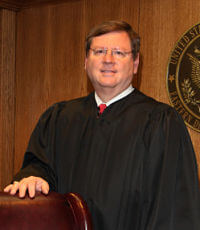Katy Perry’s “Dark Horse” Found to Infringe Christian Rap Song

Takeaway: A U.S. jury has determined that Katy Perry’s chart topping song, “Dark Horse,” infringed the beat of Marcus Gray’s “Joyful Noise.”
After a long, high profile case in the U.S. District Court for the Central District of California, the jury has determined that portions (about 45%) of Katy Perry’s instrumental beat of “Dark Horse” did indeed rip off “Joyful Noise.” During the trial, Perry asserted that Gray’s song was too obscure to have been copied, with less than 1% of the view count on YouTube compared to that of “Dark Horse,” but in a decision that came as a surprise to many, this was not enough.
The Los Angeles jury has now determined that the damages to be paid are $2.78 million of the $41 million brought in by the song. Perry’s legal team has not yet conceded, however, as they now seek U.S. District Judge Christina Snyder to rule that no reasonable jury could find copyright infringement based on the evidence presented at trial. If Judge Snyder agrees with this claim, then the award for damages would be moot.
Photo Credit: https://abcnews.go.com
USPTO Opens Public Comment Period for Proposed Fee Raises
Takeaway: The USPTO has proposed a vast array of patent fee adjustments and has opened a 60-day window for public comment on the proposal.
On July 31, the USPTO announced that in order to maintain a “predictable and sufficient stream of funding,” it will be adjusting 295 patent fees. Some notable fee changes include the $300 patent application filing fee being increased to $320, as well a 20% increase to the issuing fee. For large businesses this is the $1,000 fee becoming $1,200, for small businesses, the fee will go from $500 to $600, and for micro-entities, from $250 to $300. Additionally, it would now cost a business seeking inter partes review $19,500 instead of $15,000.
The public comment period will be open for 60 days, with the changes likely to be finalized in 2020.
Under European Union Data Protection Laws, Websites Must Obtain Consent to Share Personal Information with Facebook if They Embed a Like Button

Takeaway: If you embed social media links on your website, you should request permission from those visitors to send their personal information to the social media sites. If your business embeds social icons such as the Facebook “like” button on your website, you will need to implement a protocol for informing consumers that their personal information is being shared with Facebook.
Under European Union data protection laws, Europe’s highest court ruled that any business that implements the Facebook “like” button on its website must inform consumers and ask for their consent to collect their personal information and send it to Facebook.
When you embed a Facebook “like” button on your website, there is a transmission of a visitor’s personal information that is sent to Facebook, whether or not the user actually clicks the “like” button or is even a member of Facebook. For this reason, the court found that there was a need for the websites to request consent from visitors to send their personal information to Facebook. Even though this ruling was Facebook specific, it is likely good practice to obtain consent for any social media link that is embedded in your website because most social media icons are structured in a similar manner, or alternatively take the link off of your website.
New York State Sets Out to Pass Comprehensive Privacy Bill

Takeaway: New York has set out to pass another comprehensive state privacy bill in the United States that will affect all businesses that are in New York State or produce products or services that are intentionally targeted to residents of New York State.
Another state is proposing their own comprehensive privacy bill. The first comprehensive privacy bill to be signed in the United States was in California and was titled the California Consumer Privacy Act (“CCPA”). Now, New York’s privacy act may be reaching further than the law that was enacted in California.
Currently, there are a couple of big differences that set the New York bill apart from the CCPA. First, the New York bill has implemented a private right of action. In other words, consumers whose rights have been violated under the bill will be able to sue the violator directly without the need for the attorney general getting involved. Here in California, the CCPA does not provide for a private right of action and the state attorney general must bring suit on behalf of the people of California.
The second major difference pertains to who must comply with the law. In the New York bill, these regulations apply to all businesses, whereas in California, the bill applies only to businesses with more than $25,000,000 in annual gross revenue or those businesses who are primarily in the business of processing and selling personal information. What this means is that any business that collects the personal information of individuals who are residents of the State of New York must comply with this law. This aspect is very similar to the European data protection law known as GDPR. Currently, companies around the world that collect the personal information of individuals residing in Europe must comply with GDPR. Now, it appears this may be the same in New York unless the bill is modified before being signed into law.
This bill is yet another step toward consumer privacy protection; however, if many more states follow suit, we may be looking at a very fragmented privacy system in the United States. It will become more difficult to operate a business online as businesses will have to consider what could be 50 different and contradictory state privacy laws. Hopefully, the federal government will be able to put together a comprehensive privacy law before that happens.
Judge Gilstrap of the Eastern District of Texas Modifies Procedure for Arguing Eligibility Contentions

Takeaway: If you end up litigating a patent case in the Eastern District of Texas before Judge Gilstrap, it is now important to assert your eligibility contentions within the first 45 days after receiving the patent owner’s disclosure and infringement contentions.
This month, Judge Gilstrap modified his patent local rules to require eligibility contentions to be asserted earlier in a patent case. This modification will require parties that plan to argue under 35 U.S.C. § 101 that a patent is not valid based on ineligible patent subject matter must do so early in the case, just as is required for other defenses.
Previously, it was only required for parties to assert defenses under 35 U.S.C. § 102 (i.e. novelty) and 35 U.S.C. § 103 (i.e. obviousness) early in the case, now eligibility contentions will be included in that requirement in cases before Judge Gilstrap of the Eastern District of Texas. The official rule will be that eligibility contentions must be presented within 45 days of the party receiving the patent owner’s disclosure and infringement contentions.
Photo Credit: https://www.law360.com
Cislo & Thomas LLP Spotlight

Jeffrey G. Sheldon Honored in Best Lawyers in America 2020 Edition Awards!
Congratulations to Jeffrey G. Sheldon, Esq. on his inclusion in the 26th Edition of The Best Lawyers in America for his work in IP Litigation, Patent Litigation, Patent Law and Trademark Law!



